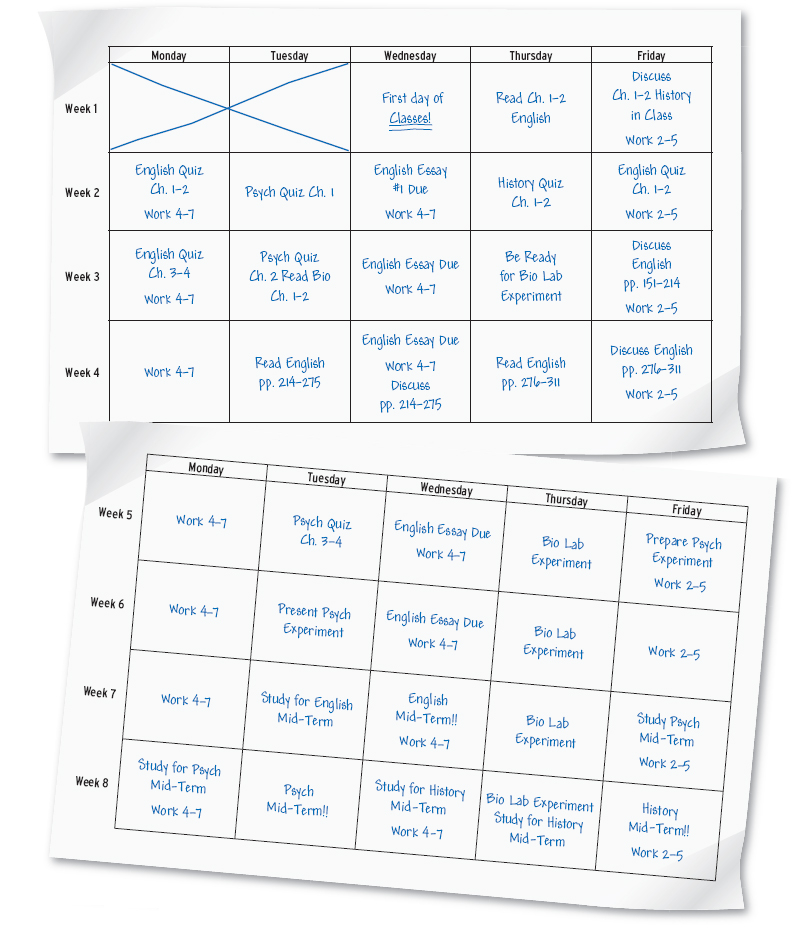1.2.1 USE A PLANNER
DID YOU KNOW?
48% of first-year students find it difficult to manage their time effectively.
Your college might design and sell a calendar in the campus bookstore designed specifically for your school, with important dates and deadlines already provided. Or you might prefer to use an online calendar or the calendar that comes on your computer or cell phone. Regardless of the format you prefer (electronic or hard copy), it’s a good idea to begin the term by completing a term assignment preview (Figure 2.1). This is a template you can use to map your schedule for an entire term.

To create a term assignment preview, begin by entering all of your commitments for each week: classes, assignment due dates, work hours, family commitments, and so on. Examine your toughest weeks during the term. If paper deadlines and test dates fall during the same week, find time to finish some assignments early to free up study and writing time. Note this on your cell phone or calendar. If you use an electronic calendar, set a reminder for these important deadlines and dates. Break large assignments (term papers, for example) into smaller steps, such as choosing a topic, doing research, creating an outline, learning necessary computer skills, writing a first draft, and so on. Add deadlines in your term assignment preview for each of the smaller portions of the project. Breaking a large project into smaller steps is something you will probably have to do for yourself. Most professors won’t provide this level of detailed assistance.
YOUR TURN
What kind of planner do you currently use, if any? Does your method of planning work for you? Why or why not?
After you complete your term assignment preview, enter important dates and notes from the preview sheets into your calendar or planner and continue to enter all due dates as soon as you know them. Write down meeting times and locations, scheduled social events (including phone numbers in case you need to cancel), study time for each class you’re taking, and so forth. It’s best not to rely solely on an electronic calendar. Keep a backup copy on paper in case you lose your phone, you can’t access the Internet, or your computer crashes. It’s also a good idea to carry your calendar or planner with you in a place where you’re not likely to lose it. Your first term of college is the time to get into the habit of using a planner to help you keep track of commitments and maintain control of your schedule. This practice will become invaluable to you in your career. Check your notes daily at the same time of day for the current week as well as the coming week. It takes just a moment to be certain that you aren’t forgetting something important, and it helps to relieve stress.
27
28